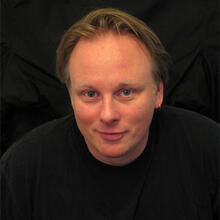There’s been a death in the family.
Or at least I think so. To be honest, it’s a bit hard to tell. Perhaps it’s more accurate to say that it feels as if there’s been a death in the family, and if I’ve learned anything in the past decade, it’s to trust my gut on these things.
Stephen Colbert taught me that.
He called it “truthiness,” a term he introduced to the world on the debut broadcast of “The Colbert Report” in 2005. He defined it satirically as “truth that comes from the gut, not books.” It was foundational to the satirical version of himself that he played on the mock news show he hosted for nine years. It’s the comic weapon that enabled him to become a legitimate political force and arguably the most relevant Catholic public figure among young Americans next to Pope Francis.
It’s the loss of that version of Colbert that I’m feeling the most, now that he left his show—and presumably his alter ego—behind on Dec. 18 in order to take over David Letterman’s “Late Show” slot sometime in 2015.
The truth is, I desperately needed that Stephen Colbert back in 2005. His show debuted two and half years after President Bush had infamously declared “mission accomplished” in Iraq. Scooter Libby had just resigned as Dick Cheney’s adviser in the wake of the Valerie Plame affair. New Orleans was devastated by Hurricane Katrina, and the world watched the U.S. government respond with all the competence of a banana republic.
We were four years into a post-9/11 world, a surreal time in which Karl Rove actually upbraided a New York Times writer for being part of “what we call the reality-based community,” where people “believe that solutions emerge from your judicious study of discernible reality.” “That’s not the way the world really works anymore,” Rove said. “We’re an empire now, and when we act, we create our own reality.... We’re history’s actors...and you, all of you, will be left to just study what we do.”
Wow….
Amid this absurdity, watching Colbert—and Jon Stewart of the “Daily Show”—became a nightly sanity check. For millions of others like me in this “reality-based community,” the satiric deconstruction of politics and media became the most compelling form of truth-telling available. Colbert’s hilarious skewering of President Bush at the 2006 White House Correspondents’ Dinner became the stuff of legend. Speaking truthiness to power didn’t end the insanity; it just made it feel a lot less claustrophobic.
Colbert’s political meta-commentary had real impact, but biting satire in the realm of political discourse is not without precedent. It’s his presence as a Catholic in the public square that was truly original.
As the self-proclaimed “pope of basic cable,” Colbert performed a brilliant high-wire act (often in tandem with America’s James Martin, S.J.), in which the host’s Catholic faith was the subject. It wasn’t simply a counterbalance to the de rigueur Irish-American Catholicism of Bill “Papa Bear” O’Reilly or Sean Hannity. Colbert’s take on faith was far more challenging.
Where else have we seen a comedian testify before Congress about the plight of migrant workers and, in a brilliant piece of political theater, manage to puncture its sanctimony while delivering a Gospel message (Mt 25:40)? “I like talking about people who don’t have any power,” Colbert told a House subcommittee. “‘Whatsoever you do for the least of my brothers,’ and these seem like the least of our brothers right now.... Migrant workers suffer and have no rights.”
Where else have we seen an edgy American entertainer inspire college students to camp out overnight and cram into a gymnasium by the thousands just to hear him talk with the cardinal archbishop of New York?
The simple answer is, we haven’t seen it before. The question now: will we see it again?
I was there that night at Fordham when Colbert and Cardinal Dolan had their discussion. By far the biggest takeaway was how intelligent, thoughtful and well-read in terms of his faith Stephen Colbert was.
Fortunately, that Stephen Colbert is still very much with us. While I will continue to mourn the passing of his Comedy Central character, I rely on a faith that teaches us that “with death life is changed, not ended.” Truth be told, I’m also hoping for a resurrection of some sort at 11:35 p.m. on CBS sometime in 2015.








